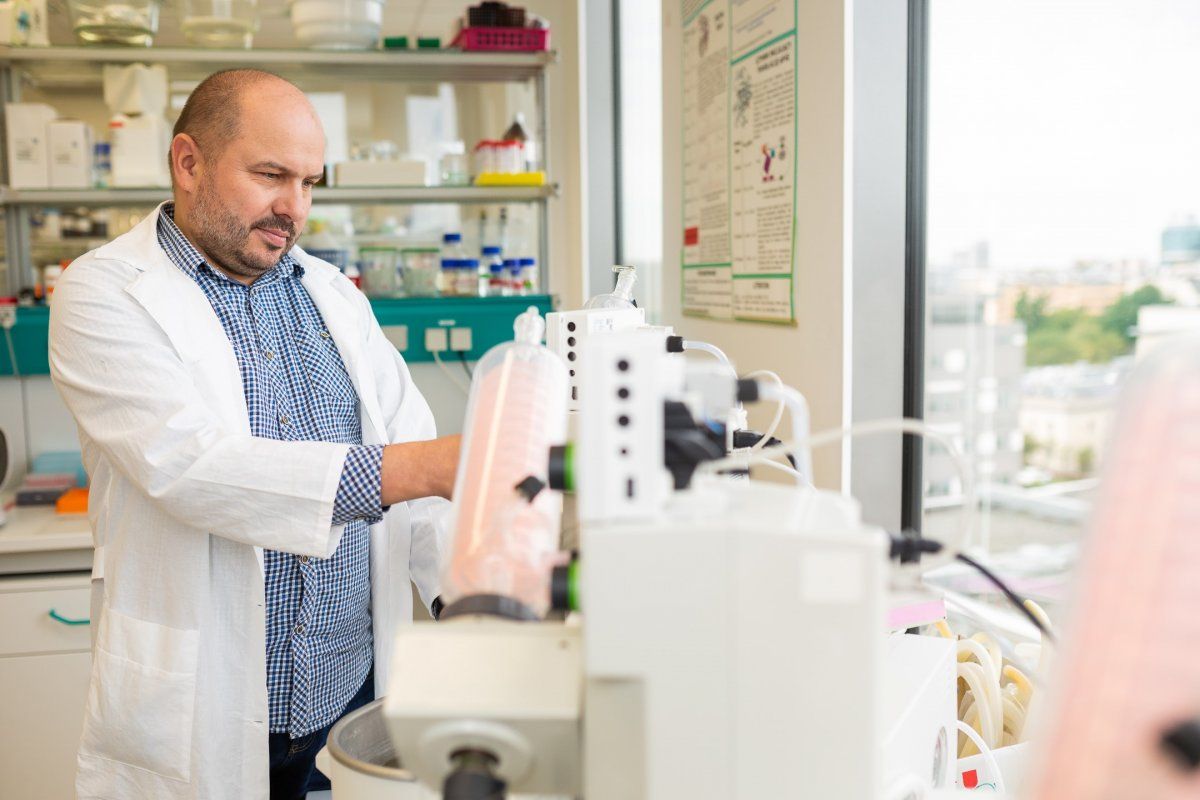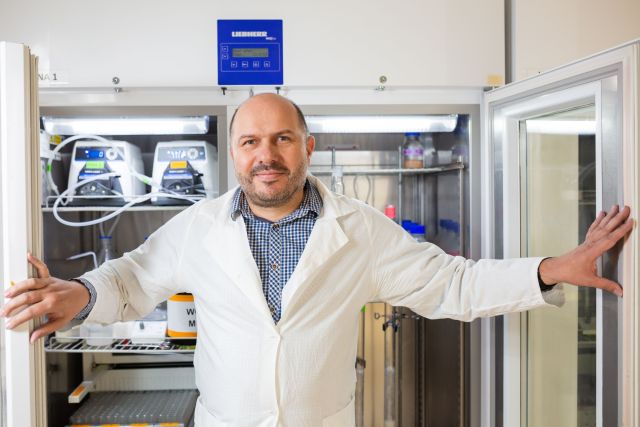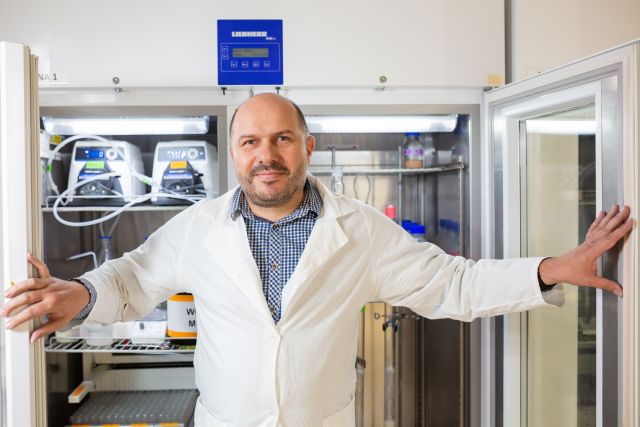Principal Investigator
:
Prof. dr hab. Jacek Jemielity
Centre of New Technologies, University of Warsaw
Panel: ST4
Funding scheme
: OPUS 17
announced on
announced on 15 March 2019
Recently, there has been an explosion of interest in novel therapeutics at the interface of chemistry and biology. Therapies based on mRNA, i.e. the messenger ribonucleic acid that is the cellular recipe for protein, are perhaps the most popular among them.
mRNAs with any sequence can be easily synthesised in a test tube. However, due to their inherent characteristics, such as instability and immunogenicity, therapeutic mRNAs must be properly designed to meet the therapeutic conditions. During the pandemic, the mRNA technology has been spectacularly used in the Covid vaccines. Nonetheless, the potential application of mRNAs is much greater; mRNA has also been tested for treatment of cancer, genetic diseases, as well as application in cell therapies and regenerative medicine. Nevertheless, in order to design such therapeutics, it is crucial that we understand the properties of mRNA and its metabolism inside the cell. An important aspect of mRNA metabolism is that at least three nucleotides at the 5' end of mRNA are tagged by methyl groups. Some of these methylations are recognised by specific proteins involved in various stages of gene expression, some serve as markers to set human mRNA apart from the RNA of pathogens, such as viruses; the role of other methylations has not yet been determined. Some are irreversible, while others appear to act as a temporary regulatory mechanism.
 Fot. Michał Łepecki
The research project synthesises the tools necessary to produce mRNAs with different 5' end methylation statuses. The tools are then used to study the impact of specific methylations on the biological properties of mRNAs, in particular those essential from the point of view of their possible therapeutic use. The project will endeavour to identify solutions to dramatically increase the mRNA productivity, so that more proteins could be made from the same amount of mRNA inside the cell. M6Am modification plays an essential role as it often undergoes a natural modification under cellular conditions. This is the so-called post-transcriptional modification, which occurs in the cells after mRNA biosynthesis. This modification is reversible and there is an enzyme in the cells capable of removing it (FTO). Although the function of the natural modification is yet unknown, studies show that it is associated with an increased mRNA productivity. In the studies, the methyl group was replaced by the benzyl group (AvantCap) which is much bigger. It was found that it perfectly mimics the natural modification in terms of mRNA properties but is not removable by the FTO enzyme. Thus, productivity of the synthetic mRNA is activated and the FTO enzyme cannot disactivate it. In practice, more desired proteins whose production instructions are written in a mRNA molecule, are produced.
Fot. Michał Łepecki
The research project synthesises the tools necessary to produce mRNAs with different 5' end methylation statuses. The tools are then used to study the impact of specific methylations on the biological properties of mRNAs, in particular those essential from the point of view of their possible therapeutic use. The project will endeavour to identify solutions to dramatically increase the mRNA productivity, so that more proteins could be made from the same amount of mRNA inside the cell. M6Am modification plays an essential role as it often undergoes a natural modification under cellular conditions. This is the so-called post-transcriptional modification, which occurs in the cells after mRNA biosynthesis. This modification is reversible and there is an enzyme in the cells capable of removing it (FTO). Although the function of the natural modification is yet unknown, studies show that it is associated with an increased mRNA productivity. In the studies, the methyl group was replaced by the benzyl group (AvantCap) which is much bigger. It was found that it perfectly mimics the natural modification in terms of mRNA properties but is not removable by the FTO enzyme. Thus, productivity of the synthetic mRNA is activated and the FTO enzyme cannot disactivate it. In practice, more desired proteins whose production instructions are written in a mRNA molecule, are produced.
The AvantCap-modified mRNA molecule is up to six times more productive in mice. It means that the recipe for the production of a specific protein contained in a modified molecule will produce over six times more proteins as compared to mRNA using the technology employed in the Covid vaccines. By administering such modified mRNAs, it will be possible to achieve a therapeutic effect in the body at a much lower dose. Under certain conditions, this difference can be even greater (even a hundredfold).
The mechanism of action of this invention is not entirely clear. Certain natural modifications are known to occur once the mRNA transcription in the cells give a higher translation priority to the molecules . The molecules are more efficiently decoded under certain conditions, resulting in an increased production of certain types of proteins that are essential for the cells. It seems that the modification results in the molecules geting priority in the queue for protein production. This solution could become a breakthrough in the application of more difficult vaccines than antiviral vaccines. A research paper on the subject has been published in the prestigious Journal of the American Chemical Society.
Project title: New methods for mRNA 5' end labelling and examples of their application in studies on RNA metabolism and searching for inhibitors of cap-structure-recognising proteins with therapeutic relevance
Prof. dr hab. Jacek Jemielity
Head of the Laboratory of Biological Chemistry at the Centre of New Technologies, University of Warsaw (CeNT UW). His research focuses on the synthesis of biologically important nucleoside analogues and their use for the purposes of nucleic acid modification. He specialises in therapeutic mRNAs, known to be more effective at stimulating cells to produce specific protein types than natural molecules. He has authored nearly 140 scientific publications and 10 patents and patent applications in many countries. His inventions are used in numerous clinical trials of mRNA cancer vaccines. He is the winner of the 2021 prize from the Foundation of Polish Science and co-founder of ExploRNA Therapeutics, a spin-off company of the University of Warsaw.


